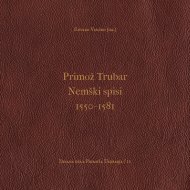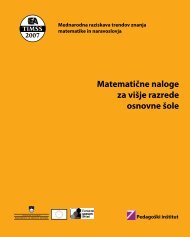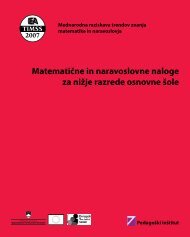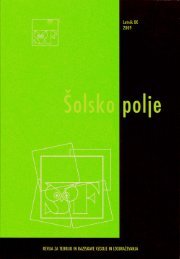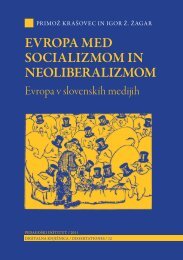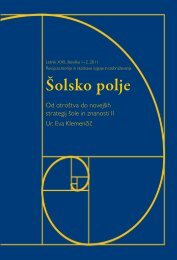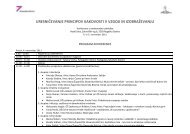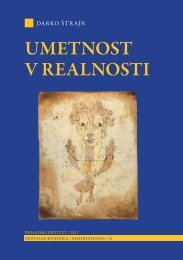Šolsko polje, letnik XX, številka 5-6, 2009: Vloga ... - Pedagoški inštitut
Šolsko polje, letnik XX, številka 5-6, 2009: Vloga ... - Pedagoški inštitut
Šolsko polje, letnik XX, številka 5-6, 2009: Vloga ... - Pedagoški inštitut
You also want an ePaper? Increase the reach of your titles
YUMPU automatically turns print PDFs into web optimized ePapers that Google loves.
JOURNALISTIC (RE)PRODUCTION OF HISTORY: TELEVIZED COVERAGE OF RADOVAN ...87On the 22 of July, the protests to support Radovan Karadžić were organizedin Belgrade by the Serbian Radical party, and other right-wingorganizations.On the 23 of July, copies of different official materials from SerbianArmy meetings were found in the apartment where Radovan Karadžićwas hiding.On the 29 of July, dozens of supporters of Serbian Radical Party showedtheir solidarity with Radovan Karadžić, while protesting againsthis arrest on the Belgrade’s Republic Square.In the morning, the lawyer of the former president of the Republicof Srbska claimed that he did not file an appeal against Karadžić’stransfer to the international war crimes tribunal in The Hague. He willattempt to prolong Karadžić’s transfer. (30 July 2008, TV News)First, then, the analysis shows that the coverage of the events of Karadžić’slife, arrest and legal process followed a chronological order, representingthese events as a sequence of connected and linear events. This form ofreconstruction gives the events a specific meaning, since it differs fromnews-story conventions (presenting time-movement in terms of causesand effects). It also avoids explicit interpretation of any events (Bird andDardenne, 1997), because it doesn’t follow time in terms of cause and effect.Journalists use this chronological narration as a strategic ritual in reporting,since it insulates them from accusations of bias or distortion (Birdand Dardenne, 1997; Johnson-Cartee, 2005). The journalists attempt to legitimizetheir »objectivity« through presentation of facts, reliable sources,expert opinion, accuracy and fairness. However, while using strategic ritualin reporting, objective treatment of fact and deference to official sources,journalists function as uncritical conduits for military and governmentopinion instead of fulfilling their normative role as »watchdogs«.The second most important effect of chronological narrative, besidesnaturalization, is the dramatization of events, whereby journalists attempt toattract viewers and with that, high ratings. Also for Serbian media, sensationaltendencies proved commercially expedient, and commercial imperatives ofmedia organisations generate cultural content that reduce social and culturalcomplexities. When TS reported crucial events from either Karadžić’s politicalcareer and/or his arrest, TS has used the so-called »arrangement« principlein order to construct a belief in objective reporting: it created a linear connectionbetween the events to offer only one interpretation of the events. In that,



